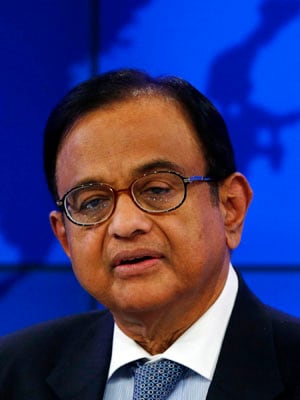
Chidambaram's last-ditch sales pitch: 'We managed to do it'
The astute FM knew well this was his last chance to try and showcase limited successes. And expectedly, he did rattle off his numbers to prove his point
The Interim Budget speech, delivered by finance minister Palaniappan Chidambaram amid much din and slogan-shouting, turned out to be the perfect platform to showcase the Congress-led United Progressive Alliance (UPA) government’s efforts on the economic front.
The astute finance minister, who took charge of the economy at a crucial time with the economy going through one of the worst phases in recent times, left no stone unturned to list out the ‘hard work’ he and his mates in North Block had done to try and turn the economy around.
To be sure, much of what Chidambaram said was expected—after all, this was a Vote on Account, and a beleaguered UPA government would obviously grab this opportunity to tell the nation that it had done all it could under the circumstances to keep the economy afloat.
Chidambaram reeled out the stats with ease: The fiscal deficit for FY14 would be reined in at 4.6 percent, below the ‘red line’ of 4.8 percent the FM had drawn for himself. The current account deficit (CAD), which had, at one point, looked ominously set to cross even last year’s figure of $88 billion, would settle at a much lower $45 billion and $15 billion worth of foreign exchange would, in fact, be added to the government’s coffers by the end of the financial year. Headline inflation had come down from 7.3 percent when the FM had read out in his last Budget speech to 5.05 percent in January this year and core inflation had fallen from 4.2 percent to 3 percent during the same period. Merchandise exports had risen 6.3 percent and 296 projects had been cleared to kickstart investment.
Much of what the FM said in his speech had been factored in by analysts and the market alike. After all, with the rolling over of a large chunk of subsidies and keeping expenditure in check, the fisc was bound to be kept under control. The budgeted plan expenditure level had not been spent and non-plan expenditure would exceed the budget marginally. In fact, the FY15 plan expenditure amount has been maintained at the same level as that of FY14. The FY15 fiscal deficit target has been set at 4.1 percent.
Chidambaram, who rattled off a long list of the UPA’s ‘achievements’ was clearly playing for the next match—the general elections—and forcefully dismissed the allegations of a ‘policy paralysis’. The markets, however, were not amused with the report card and didn’t even rejoice when he announced the fisc had been kept in check at 4.6 percent. As this piece is being written, the BSE Sensex is hovering around the 20,400 mark, up marginally by 35 points.
The FM appears to be betting on the fact that FY14 growth levels will end up around 4.9 percent, which translates into a growth rate of at least 5.2 percent for the third and fourth quarters of the fiscal. The claim: His measures to spur investment and revive growth had clearly begun showing results. The message to the Reserve Bank of India was also unequivocal: It would have to strike a balance between growth and inflation.
For most part of his speech, Chidambaram stuck to a script which most expected. Perhaps the only part where the market sat up and took note was when he dished out a few sops for the beleaguered auto sector, and also for the domestic road construction and capital goods sectors. Clearly, the FM continues to be worried about the ‘Achilles Heel’ of the economy—manufacturing, despite his happy statistics.
Chidambaram’s last such speech in Parliament before the elections signals that the UPA will go to the hustings aiming to convince the electorate that it had handled the economic challenges and had successfully steered the economy back on the rails.
The reality, of course, will be another matter. With the economy hardly out of the woods, manufacturing remaining seriously sluggish and food inflation remaining a huge problem, it will be upon the next government to face the consequences. As ratings agencies have forecast, the next government in New Delhi will have to carry a huge burden on the economic front, and the rolled-over subsidies are just one part of the problem. For a finance minister smart enough to know the next government may not be one where he has any role to play, this was one well-crafted last-ditch sales pitch.






